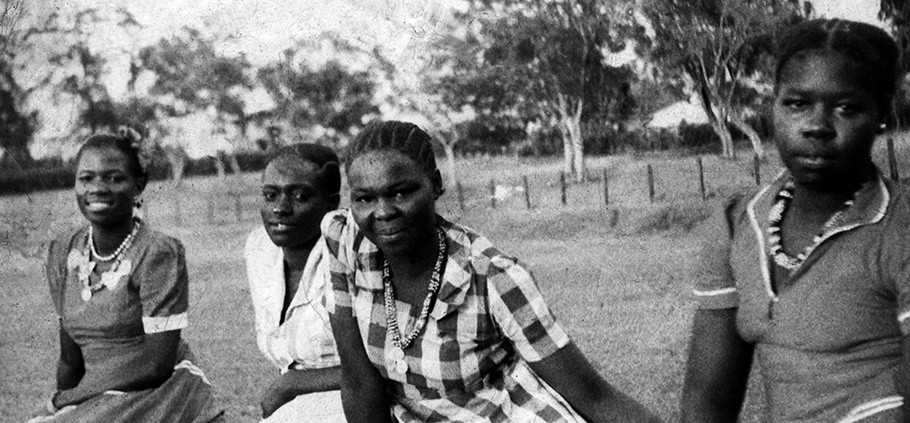NOUAKCHOTT, Mauritania — The Walk Free Foundation, an Australian-based anti-slavery activist group recently released its 2014 Global Slavery Index, detailing the status of 167 countries with regard to each country’s efforts to combat slavery. Mauritania, a West African country in the severely impoverished Sahel region of the continent has the highest prevalence of slavery in the world. Its status is largely a product of the fact that slavery is still largely viewed as an acceptable societal practice and was not considered a human rights violation by the government until 2007.
According to the Walk Free Foundation, there are approximately 155,600 out of 3.8 million Mauritanians trapped in slavery. Proportionally Mauritania boasts the worst rate of modern day slavery in the world; however India has the highest number of people trapped in modern day slavery at 14 million individuals.
Mauritania, one of the world’s least-developed countries, is ranked 155 out of 187 on the Human Development Index and its GDP per capita currently sits at $3,042. The country also frequently suffers from food insecurity as a result of climate shocks that have caused droughts and reduced agricultural productivity throughout most of the Sahel region since 2011. All of these factors contribute to producing a more vulnerable population. The Walk Free Foundation argues 72.2 percent of Mauritania’s population is vulnerable to falling into some form of modern day slavery.
Social factors in Mauritania play a significant role in perpetuating slavery as an acceptable practice. The majority of those trapped in modern day slavery in Mauritania are victims of hereditary slavery, their situation inherited through generations.

Noura Mint Mourada, now 18, became a slave to a family in Boutilimit, Mauritania, at the age of 4. Samuel Aranda for The New York Times
Individuals of Arab descent, known as Berber Arabs or White Moors, who settled in Mauritania during the 11th century, placed themselves above all other social groups in Mauritanian society. The Haratin, also known as Black Moors, were historically enslaved by the Berber Arabs and continue to make up the largest proportion of the enslaved population. Ever since, those of Haratin descent have been the most vulnerable group in the country and typically unaware of their rights.
Slaves in Mauritania have no legal rights. They are not allowed to own property, marry without the consent of their masters, travel where they wish or do virtually anything without the consent of their owner(s). Additionally, the majority of slaves never attempt to leave slavery. They view their servitude as a normal part of life and are unaware that slavery is prohibited globally. As a result, generational slavery persisted into the 21st century and the vast majority of Mauritanian slaves have no knowledge of their rights.
Mauritania did not abolish the practice of slavery until 1981 and did not pass national legislation to criminalize the practice until 2007, a provision that so far has hardly been enforced. There are currently 30 cases that have been brought before the Mauritanian court system for violating laws against owning human beings; however none of the cases have moved forward. Only one slave owner has ever been convicted by the courts.

A Mauritanian man buys goods in the Keube slum in the capital Nouakchott in this March 13, 2007 picture. Herding camels or goats out in the sun-blasted dunes of the Sahara, or serving hot mint tea to guests in the richly carpeted villas of Nouakchott, Mauritanian slaves serve their masters and are passed on as family chattels from generation to generation.
CREDIT: REUTERS/FINBARR O’REILLY
The Mauritanian government frequently denies that slavery is still practiced within its borders and reacts negatively to anti-slavery activists who try to expose instances of modern day slavery and help slaves gain their freedom. On such activist is Biram Dab Abeid who received the U.N. Human Rights Award in 2013 for its efforts to combat slavery in Mauritania.
Abeid is the founder of the Initiative pour la Resurgence du Mouvement Abolitionniste, also known as IRA-Mauritania, which works to free slaves. As a result of his efforts to change societal norms and combat modern slavery, the Mauritanian government detained Abeid in April 2012, along with other IRA members, for four months. On November 11, 2014, Abeid was detained by the government once more for his activities and has not yet been released.
International efforts to expose the realities of slavery in Mauritania have been flouted as the Mauritanian government hardly allows international NGOs or activists intending to document modern slavery in Mauritania to enter the country. The CNN Freedom Project’s 2012 documentary was conducted in utmost secrecy as the Mauritanian government would have ejected the team from the country had its true intentions been known.
While Mauritania is the worst offender of modern day slavery in the world and is reluctant to change what it considers to be an accepted social practice, there are those within Mauritania like Biram Dab Abeid who are trying to change the practice. As these activists’ efforts spread and more slaves are freed and come to know their rights, a new society that does not tolerate slavery may develop.

Mauritanians ex-slaves walk in a suburb outside Mauritania’s capital Nouakchott, November 21, 2006. They do not wear chains, nor are they branded with the mark of their masters, but slaves still exist More…
CREDIT: REUTERS/RAFAEL MARCHANTE
By Erin Sullivan | Published in Borgen Magazine on January 4, 2015
Related Content
Nigeria’s Ethiopians Protest Abuse In Saudi Arabia
Everyday Racist Treatment of Africans Abroad


wow this is crazy. The funny thing is, when i really think about it,slavery exists at home in Nigeria too. The people we call “houseboys” and “housegirls” are actually slaves if we call a spade a spade. that’s kind of freaky to think about because, growing up, it was normal to have them around. ack!
Pingback: Why The Most Important Person in Africa is the Storyteller | Afrocentric Confessions·